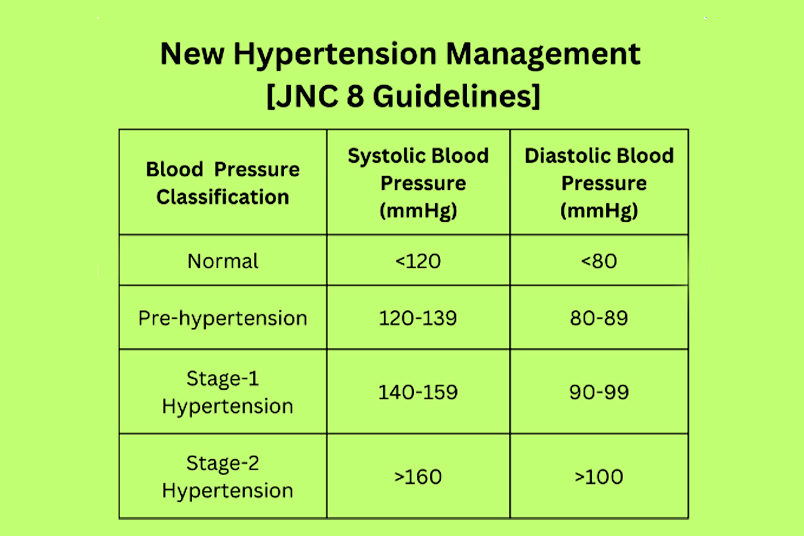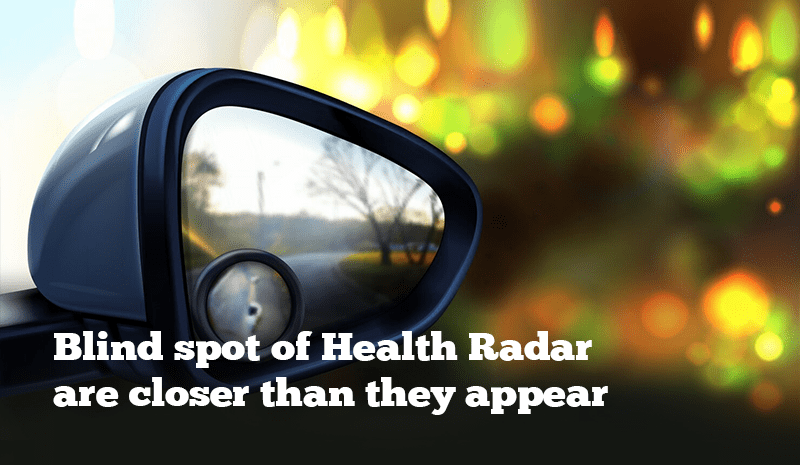We all have blind spots. While we know of vehicles and vision, there is another one that is spreading widely amongst young adults i.e. high blood pressure!
It’s true!
Young adults in urban India do not know they are having a health blind spot!
The World Health Organization states that an estimated 46% of adults with hypertension are unaware that they have the condition. Further, according to the National Library of Medicine, around 33% of urban and 25% of rural Indians grapple with the subtle yet challenging enemy of high blood pressure. They are unknowingly carrying the weight of hypertension on their shoulders.
In this blog post, let us understand what symptoms of hypertension to look for, how it affects target organs, strategies to control high blood pressure, is it curable, irreversible and a lot more.
How To Identify High Blood Pressure?

Typically, the normal range of blood pressure is considered to be between 90/60 mmHg and 120/80 mmHg. Generally, blood pressure readings consistently above 130/85 mmHg call for medical attention. However, your doctor will consider individual factors like age, overall health, and risk factors to determine the best course of action.
Further, one can also monitor blood pressure at the comfort of their home.
Seeing Beyond the Numbers, and Looking for Symptoms
Hypertension, aka high blood pressure, is often dismissed as mere numbers on a monitor. But it hides a more overwhelming story of health implications. Much to our disappointment, it generally shows no symptoms and raises its ugly head only when it is affecting your target organs.
In today’s world, we have normalized and equated having stress, high blood pressure, etc. as part and parcel of living life. The silent stare often throws questions like -If you aren’t feeling stressed or anxious, are you even being productive? Or you’re at risk of being called an alien by your relatives if you don’t have stories of frequent episodes of high blood pressure.
But thankfully, all this can be flipped!
While you might not always feel its effects, unchecked, it can significantly raise your risk of heart disease, stroke, and kidney problems.
The Ripple Effect of High Blood Pressure: Eyes, Kidneys, and Beyond
While hypertension may seem harmless, its consequences are far-reaching. But if we go by mind-boggling numbers of high blood pressure in India, are we really progressing in terms of our health?
Did you know that high blood pressure is known to cause vision problems? Silently and gradually, it causes scar in the retina part of your eyes.
Further, kidneys, the unsung heroes of the human body, filter around 200 litres of blood vessels everyday? Moreover, they also release hormones to regulate blood pressure, produce RBCs, etc., while it releases waste through urine. Kidneys are the most underrated target organs that bear the brunt of hypertension, leading to chronic kidney diseases if left uncontrolled and untreated.
But before you reach for medication, know that nature offers a toolbox of solutions to help you lower your blood pressure numbers and reclaim control.
Strategies to control high blood pressure in the early morning
Blood pressure naturally rises in the morning, preparing your body for the day. However, for some, this surge can be excessive. To keep it in check:
- Rise gently: Avoid irritating alarm clocks and sudden movements. Instead, opt for a gradual wake-up with soft light and soothing stretches.
- Clichéd but effective advice: Down a glass of water first thing in the morning! Dehydration can mimic hypertension, so rehydrate to keep your blood flowing smoothly.
- Mindful mornings: Take 5-10 minutes for deep breathing exercises, meditation, or even light exercises. Calming your body and mind can help in lowering your blood pressure.
Can high blood pressure be cured?
While "cure" might not be the right word, managing hypertension effectively can bring your blood pressure within a healthy range, significantly reducing your risk of complications. With lifestyle changes and, if needed, medication, you can live a healthy, active life with hypertension.
Hypertension's Shadow: Dangers, Heredity, and Reversibility
Ignoring high blood pressure is like a ticking time bomb for your health. It can damage your arteries, leading to heart attack, stroke, and even aneurysms. Further, family history can also play a role in hypertension, but it's not a guaranteed destiny.
But is there any hope for good news?
The answer is a joyful yes!
By adopting healthy habits, you can break the chain. Along with lifestyle changes, medication can reverse some of the damage and significantly reduce your risk.
Do high blood pressure pills make you urinate more?
All medications for blood pressure do not cause urination related problems. Only a group of medications (diuretics) can increase urination as its effect thereby causing decrease in swelling and controlling blood pressures. This is usually harmless and simply means your kidneys are efficiently filtering excess fluid.
However, if it's bothersome or accompanied by other symptoms, consult your kidney doctor for alternative medication options.
Seeking Help for Hypertension: When the Natural Remedies Aren’t Enough
While lifestyle changes are potent to help control high blood pressure, they may not always be enough. Remember, hypertension doesn't come with a one-size-fits-all approach. So, when should one seek medical help, you ask? Check the following indications to be put on your checklist-
- Your blood pressure remains consistently high despite lifestyle changes.
- You experience symptoms like headaches, dizziness, or chest pain.
- You have pre-existing medical conditions like diabetes or kidney disease.
Lifestyle modifications, regular health check-ups, and awareness are the bricks to construct a defence around hypertension.
Conclusion :
Understanding the unique challenges faced by the urban people, NU Hospitals provides a holistic approach to managing high /uncontrolled blood pressure and its pouring effects such as kidney related problems
From state-of-the-art diagnostics to personalised interventions, their commitment extends beyond treatment, embracing prevention and education. From routine life, it's time to ask – are you listening to the signals of your body?
Author: Dr. Kiran Patro

